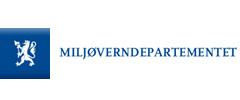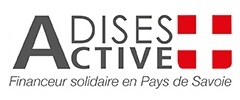The Gender & Sustainable Development Alliance
The “Gender & Sustainable Development Alliance” (G&SD) brings together the organisations WECF International, Gender Water Alliance and Global Forest Coalition and their combined membership networks of 940 member organisations and 2500 individual experts in 150 countries
01.09.2014 |WICF

The three organisations have a proven track record in leading advocacy coalitions with women’s and civil society organisations globally, including African and Asian CSO networks in the “Women’s Major Group” (track record) who will be key strategic partners for the G&SD alliance.
All three G&SD members are Netherlands-based NGOs with strong track records on advocacy for gender-equitable sustainable development policies, having achieved lasting impact with modest resources through strategic interventions. The three organisations are inclusive, ensuring equality between partners from the South and the North.
The 3 organisations and their networks complement each others advocacy experience, covering the whole spectrum of advocacy; from lobbying and proposing better laws and policies, via implementation, monitoring and evaluation to holding governments accountable for gender-equitable development. This complimentary experience is essential for achieving the change we aim for.
Our Vision for Change
Together with our partners and network members we envisage a world where the combined efforts of vocal civil society, engaged multi-sectorial partners and human-rights based development policies and programmes lead to a reversal of the trend towards increasing inequalities and conflicts for land and natural resources. A world in which all countries have abolished gender discriminative laws and norms, where men are proud to support women’s leadership and where indigenous knowledge and environmental sustainability are respected and cherished. A world in which scarce resources including land, water, forests and “climate space” are no longer up for grabs by the most powerful, but where laws and effective government institutions protect the access of the most vulnerable and ensure their full participation in the democratic decision making over resources. A world in which all state leaders take Nelson Mandela’s proverb at heart, “A Nation should not be judged by how it treats its highest citizens, but it's lowest ones”.
Our Mission for Change
The mission of the “Gender & Sustainable Development” Alliance (G&SD) is to ensure a continuous line of advocacy action from local to global and back by strengthening local civil society, women’s and gender equality organisations and their allies in the global South, to help create the enabling environment of policies, programs, laws and institutions that will ensure gender-equitable sustainable development, spreading best practices and taking combined action to tackle bad practices where needed.
This change which we aim for, is badly needed, as currently trends are moving in the wrong direction. Even though the Millennium Development Goals (MDGs) have been able to mobilize public opinion and have lead to global cooperation for poverty eradication, they remained to much in “silos” with too much a focus on technical targets and indicators. Gender equality was not sufficiently integrated into each goal area, and the target approach did not sufficiently address the underlying root causes of discrimination and the lack of good governance.
During the last 15 years, inequalities in developing countries have increased despite increases of GDP. The competition for natural resources e.g. “land-grabbing” and other environmental factors such as water pollution and climate change, have not been addressed. Women remain the majority of the poor, despite progress made as part of the Millennium Development Goals. UNWOMEN shows that in almost all countries, women work more than men. Particularly in countries where basic services are lacking, women have a greater work burden, amongst other for growing food and fetching water and fuel . Women as food-, water- and energy providers and stewards of natural resources are increasingly under pressure from competition for resources with more powerful resource companies. Pollution of resources and climate changess adds to increased scarcity. Women and children are more at risk during floods and 4 times more women died than men .
Our Overall Aim
The G&SD Alliance will critically contribute to achieving gender justice, sustainable development and lasting poverty eradication by strengthening the capacity of local CSOs, women’s leaders and gender advocates who will contribute to defining, implementing and monitoring global, national and local development policies that are gender-equitable and environmentally sustainable, and holding leaders accountable for commitments made.
Related News
The 62nd Commission on the Status of Women
Worldwide representatives and officials gathered at the United Nations headquarters in New York City to discuss the matters of women and sustainability
28.03.2018
Petition: calling for international solidarity to support environmental defenders Victoria Tauli-Corpuz & Joan Carling
Feminists Condemn Philippines President Duterte’s Accusation of Activists and Indigenous People Leaders as Terrorists
14.03.2018
Using community-based data monitoring to track gender equality realities on the ground
New York: Official Side Event to CSW62
12.03.2018
Implementing Agenda 2030 in Georgia: Where Are We Now?
WECF organised with Georgian government and the UN a workshop on the Sustainable Development Goals in Tbilisi, 19-21 February 2018
22.02.2018 | Tbilisi, Georgia





































